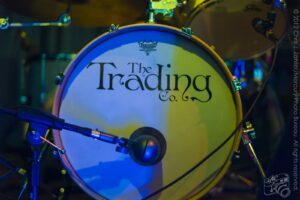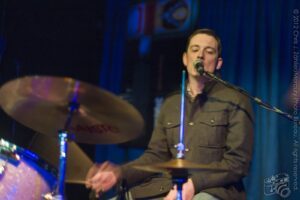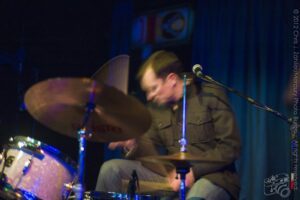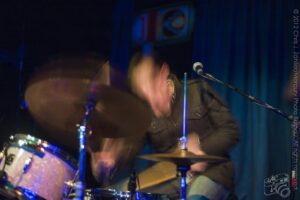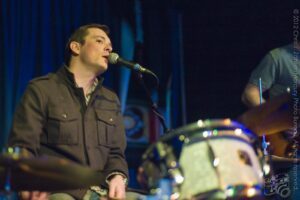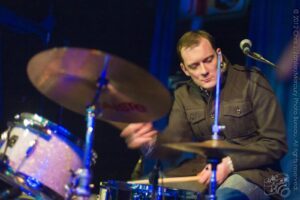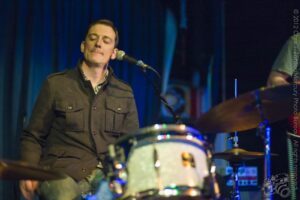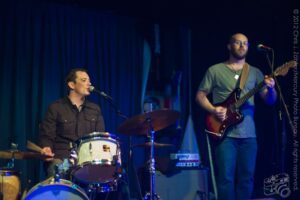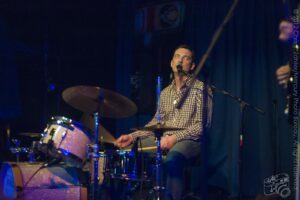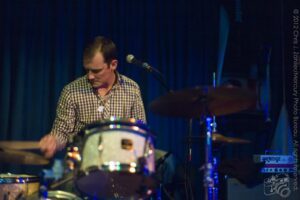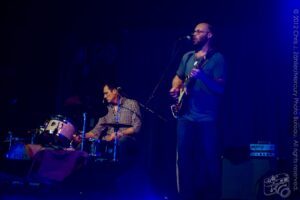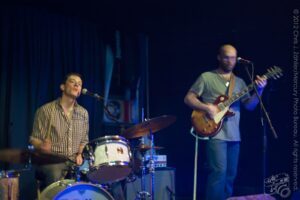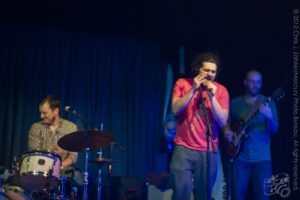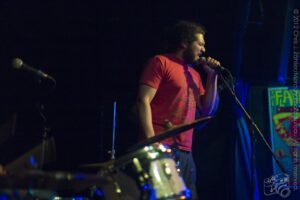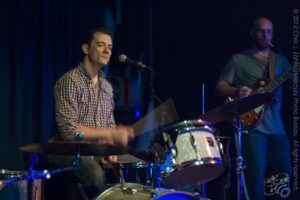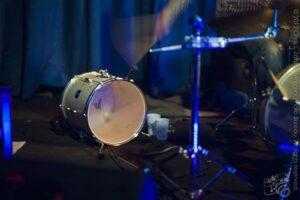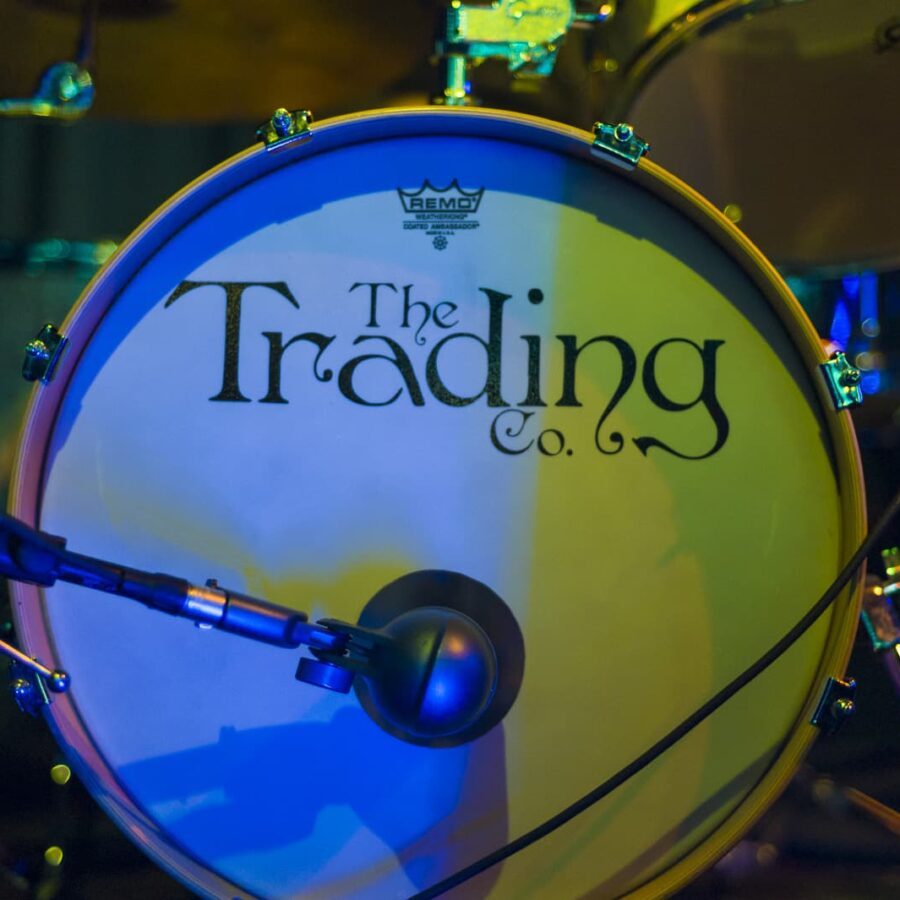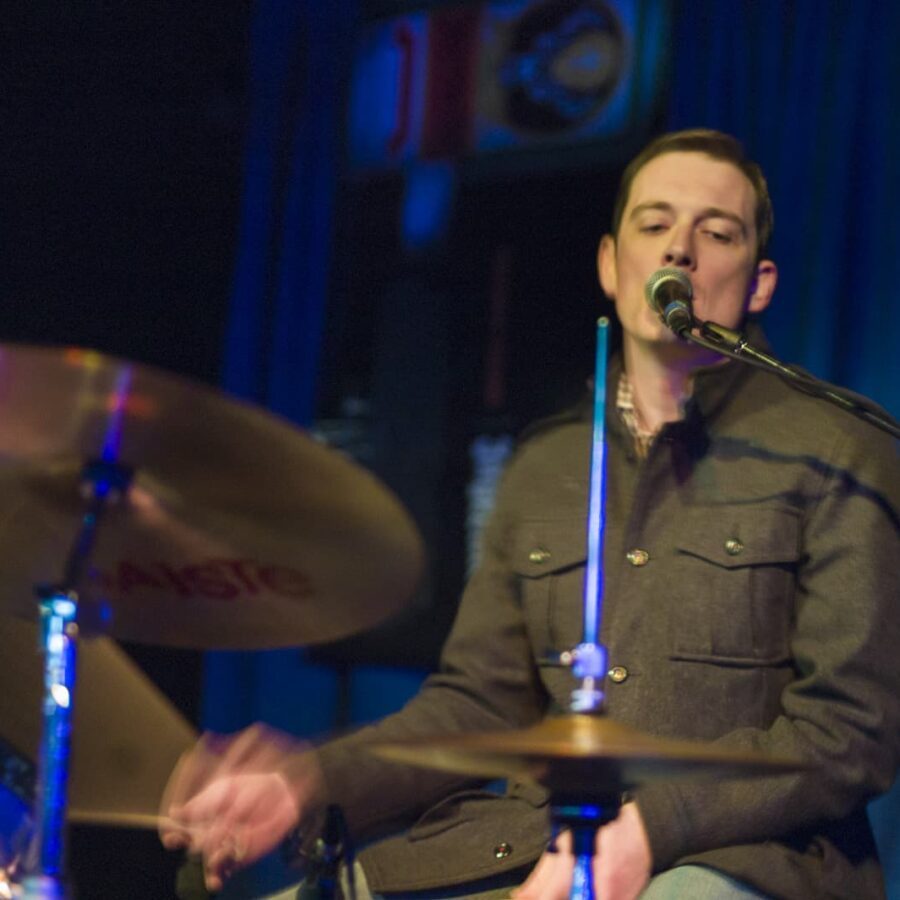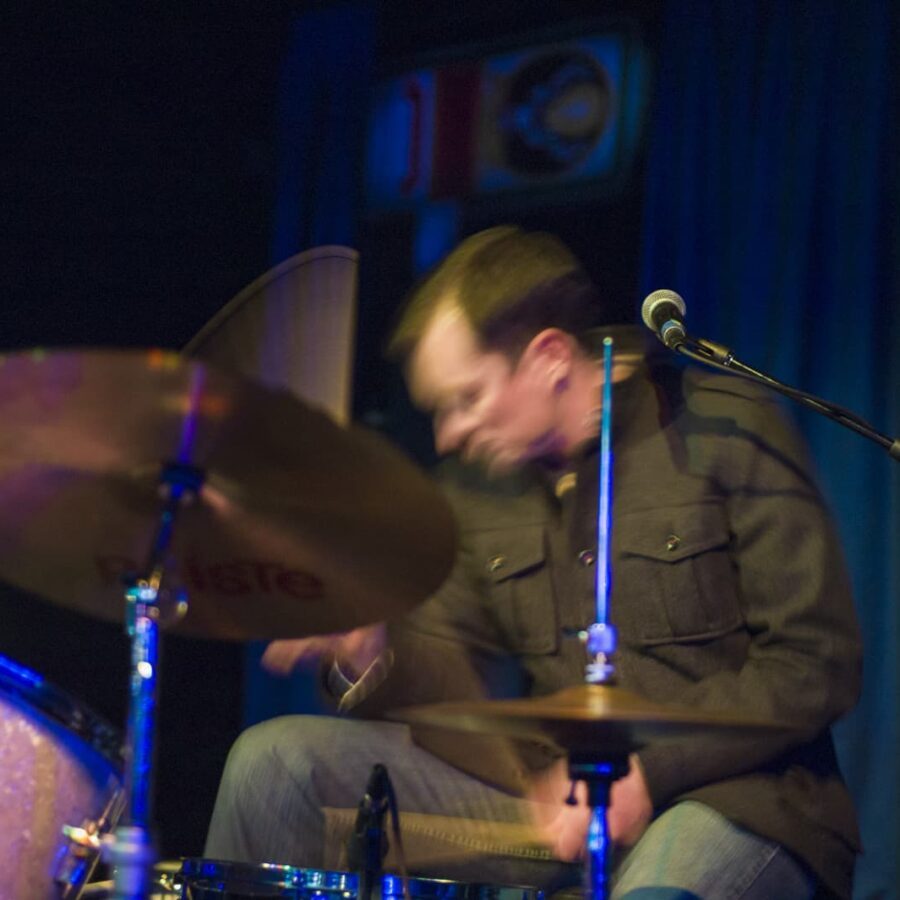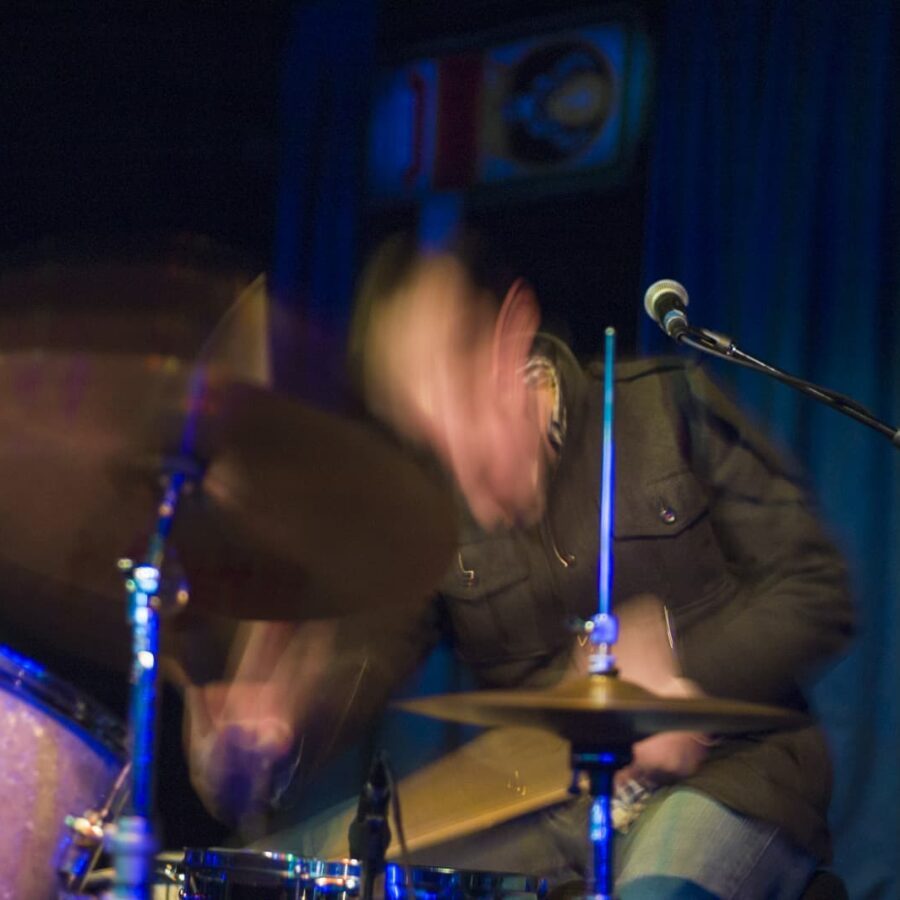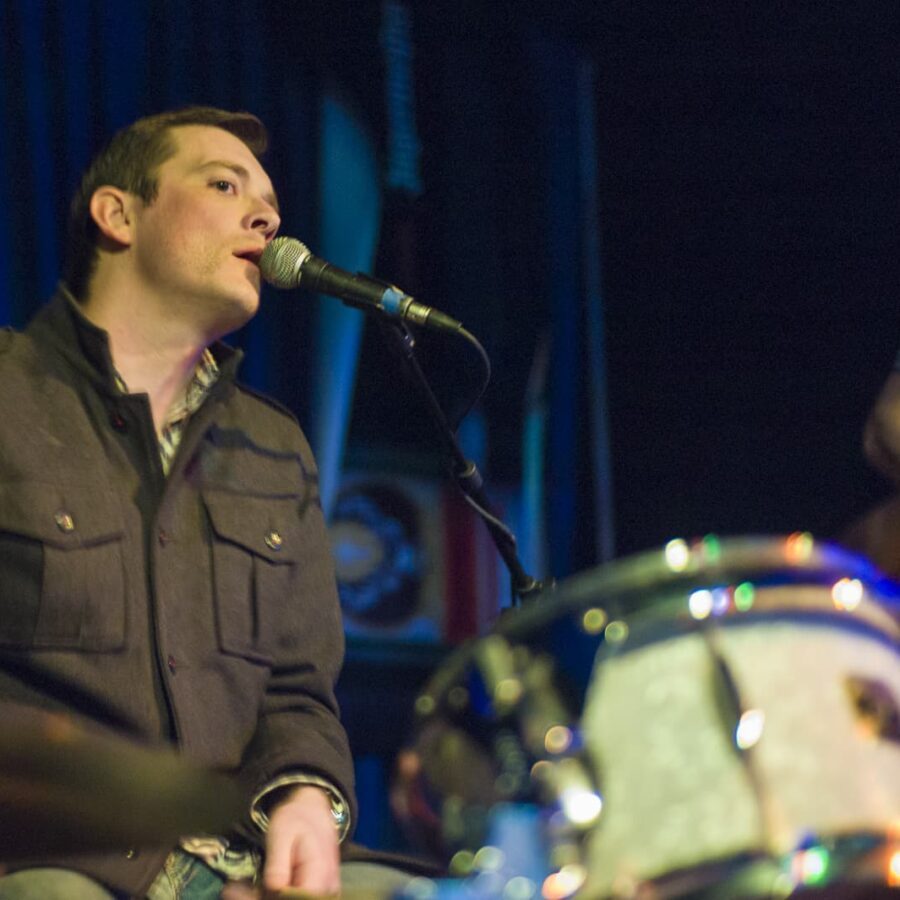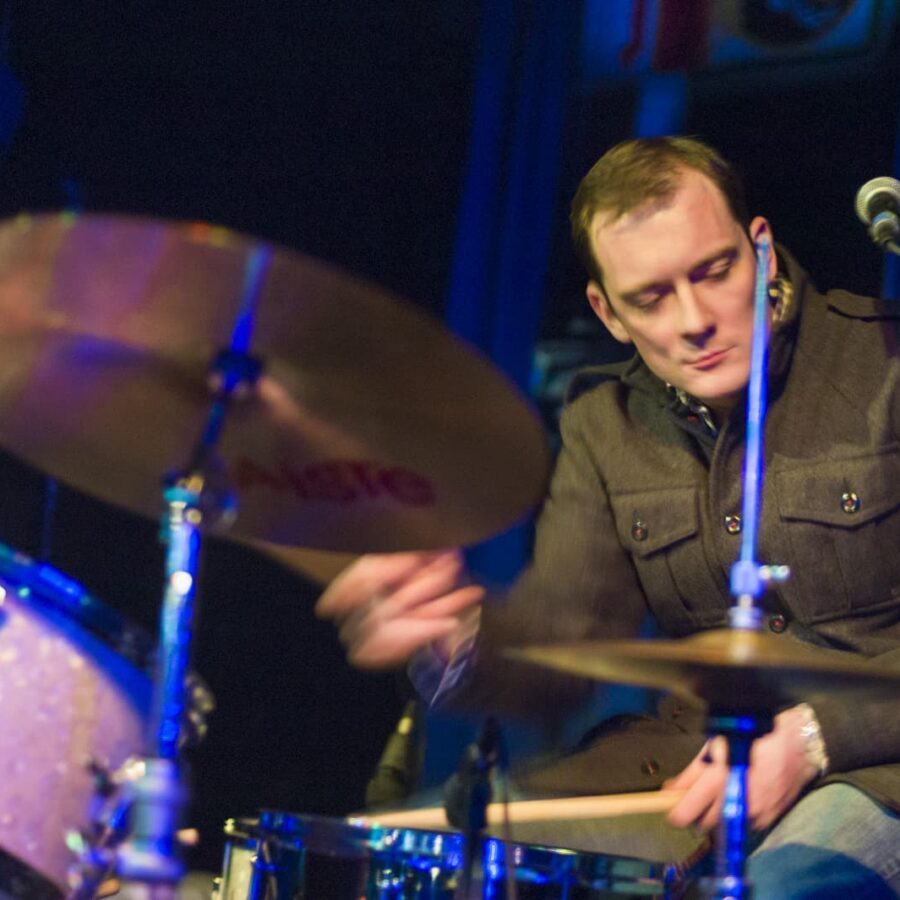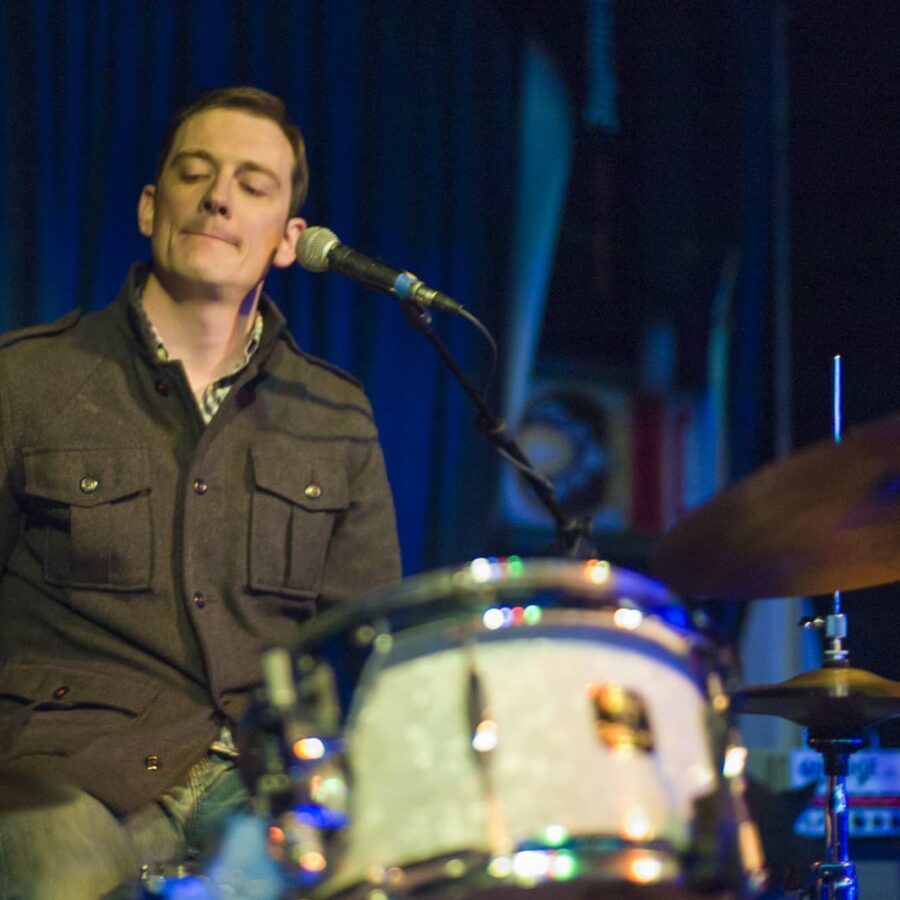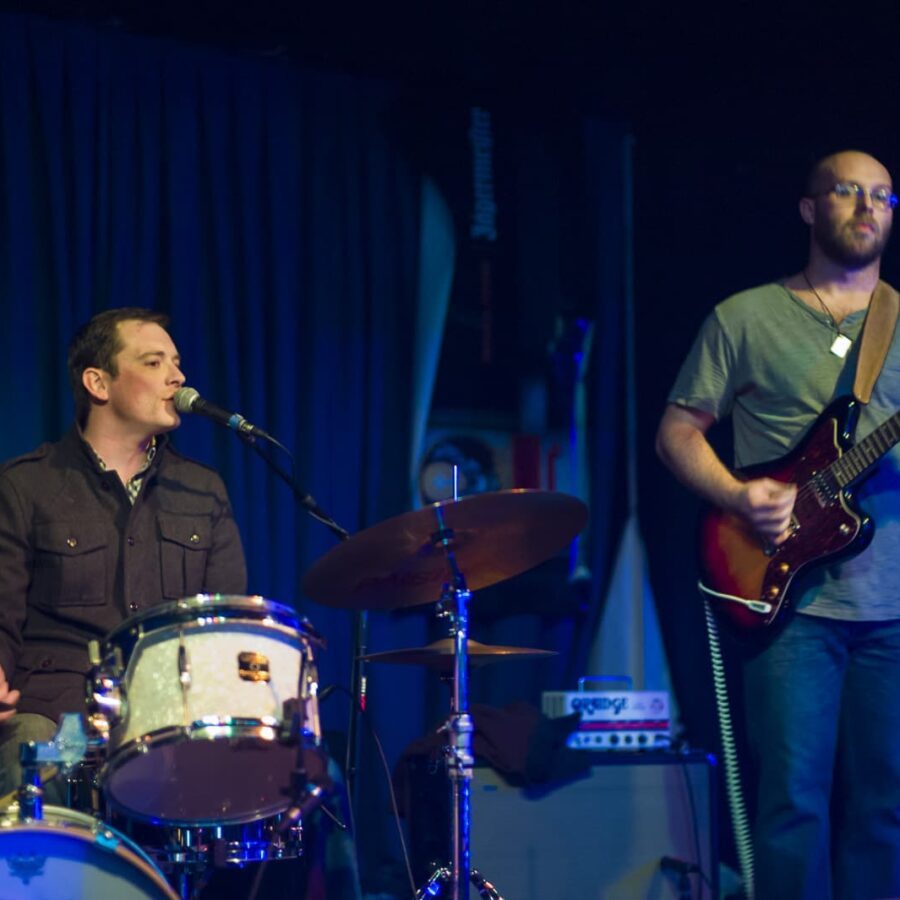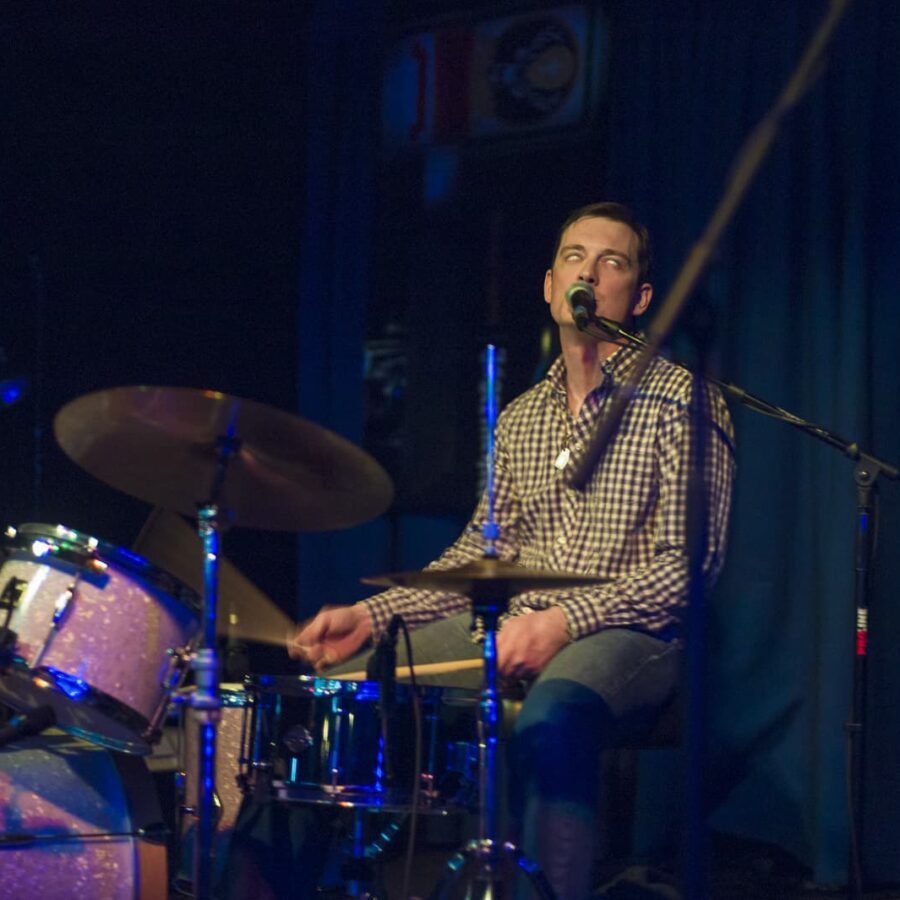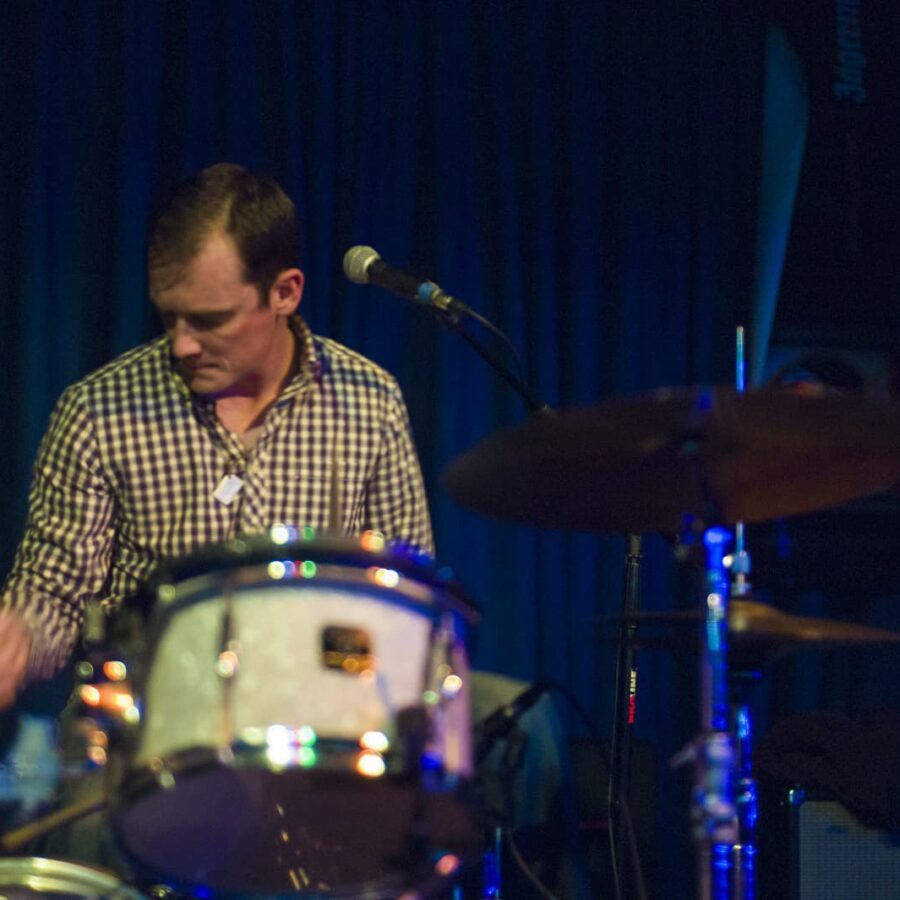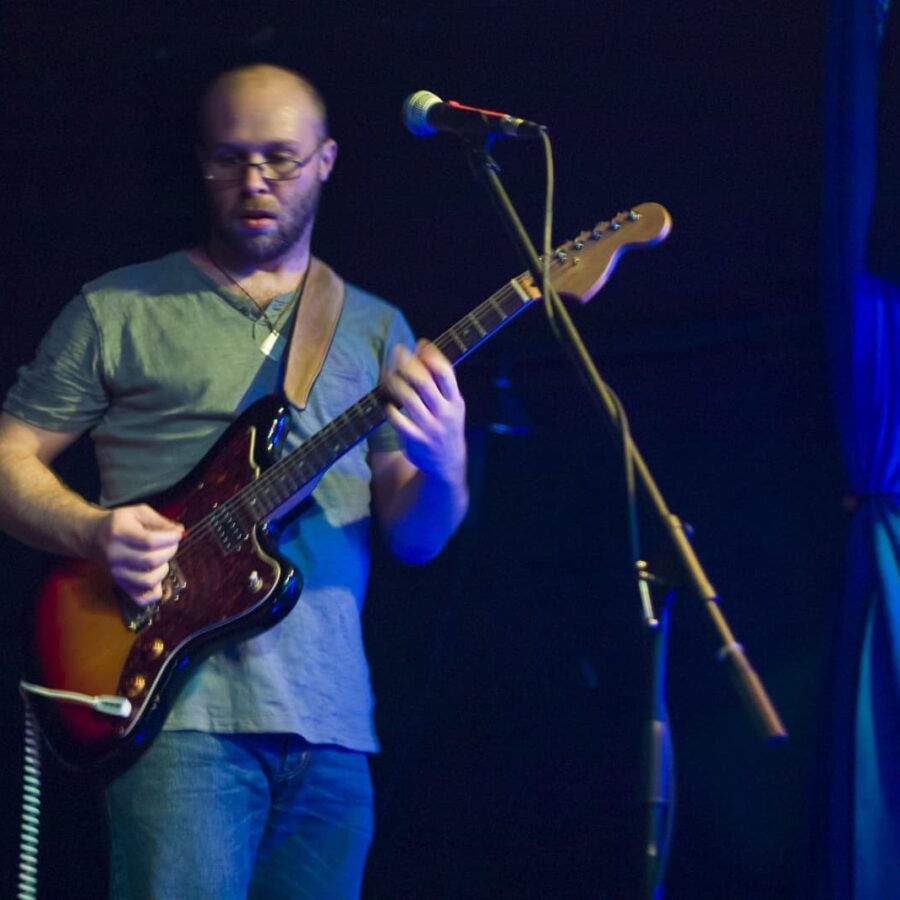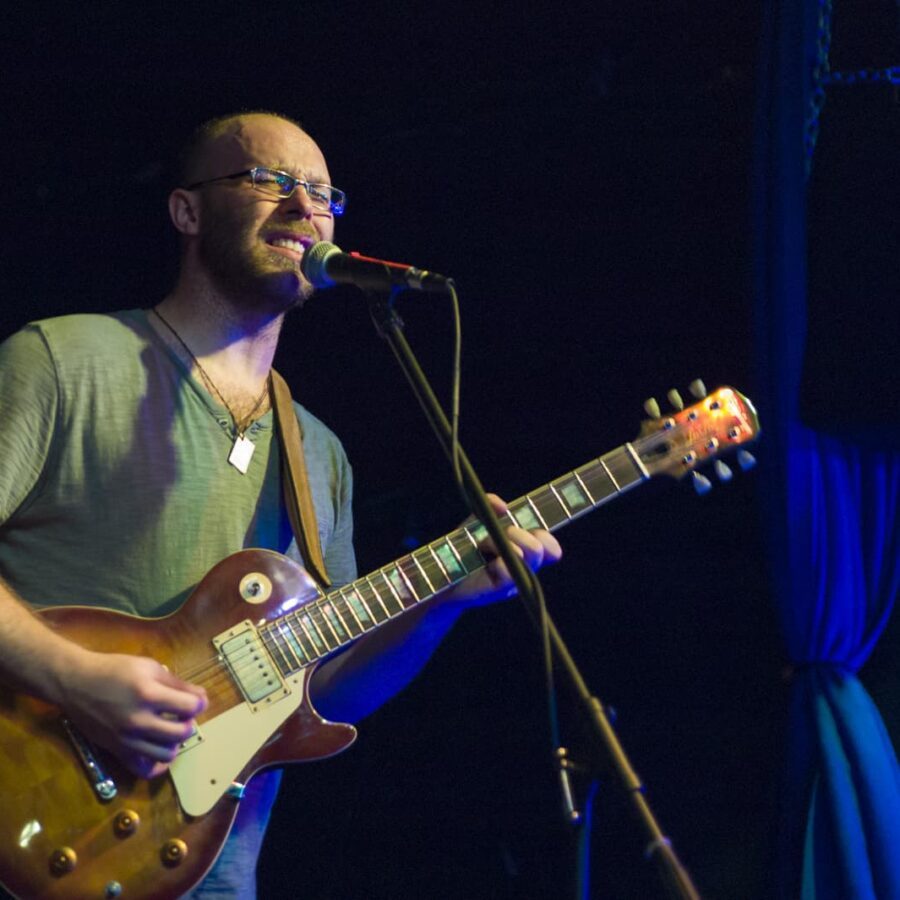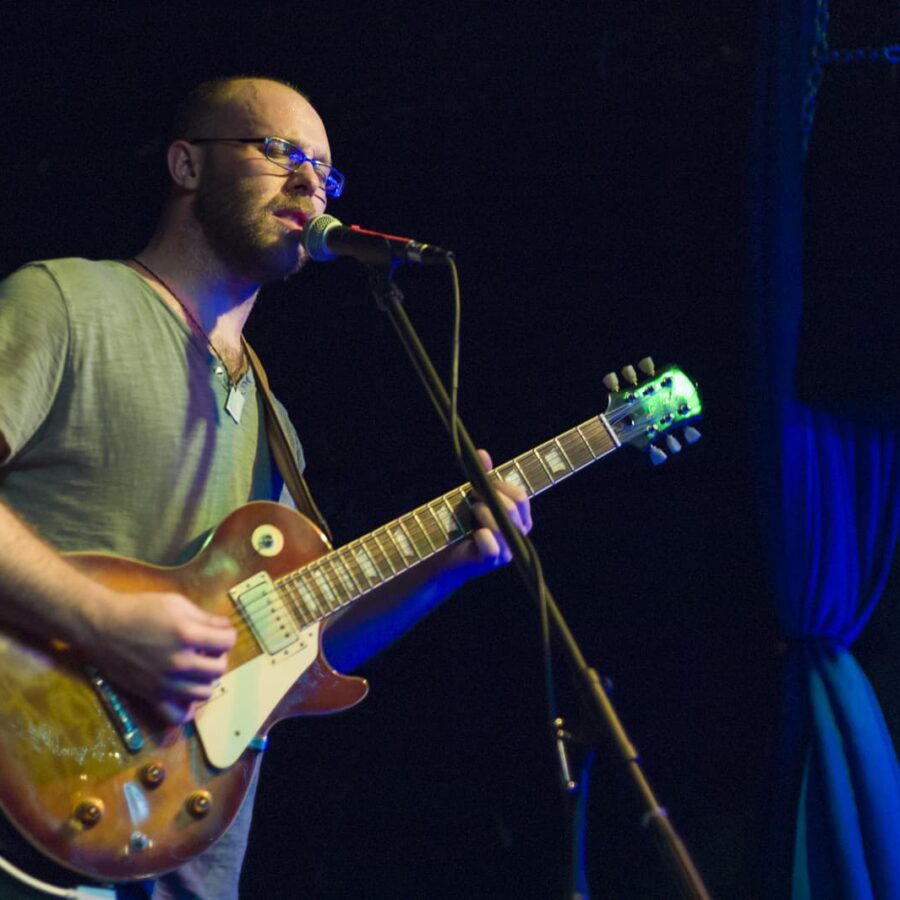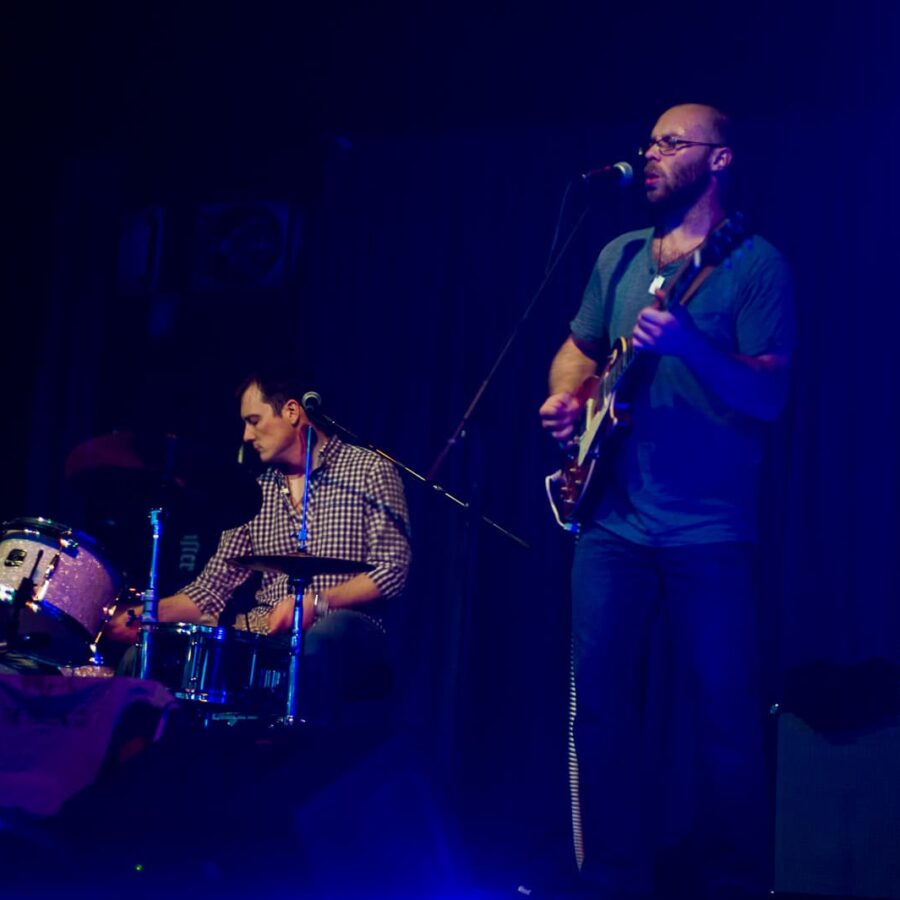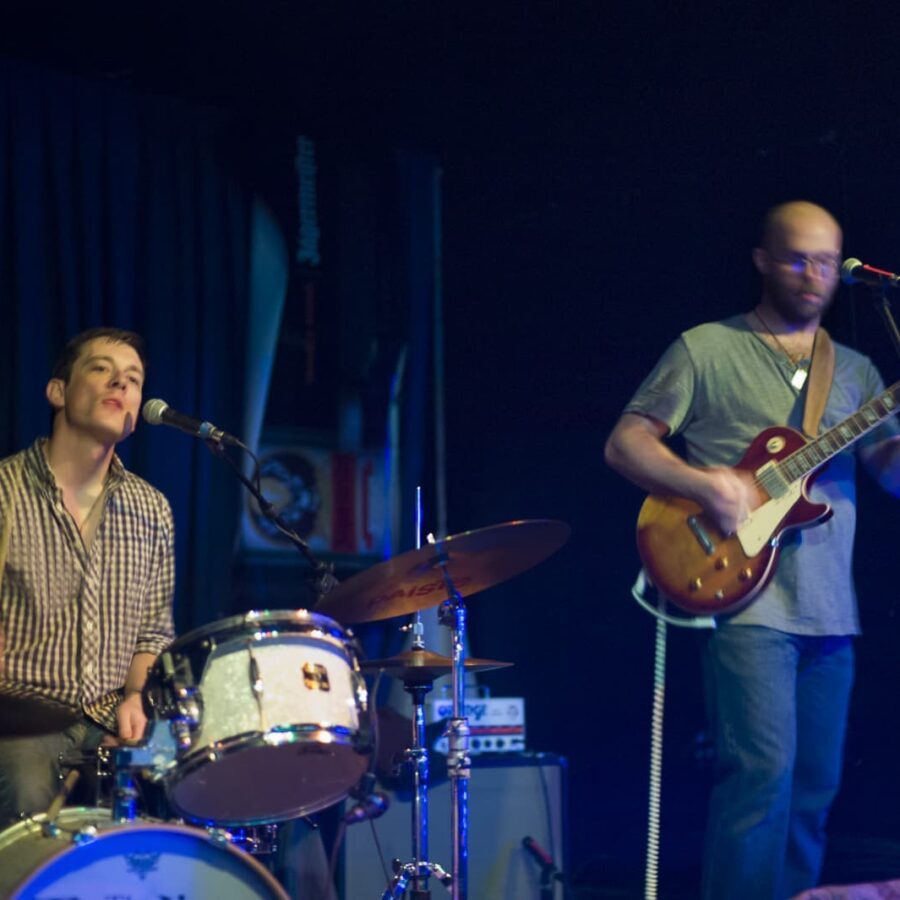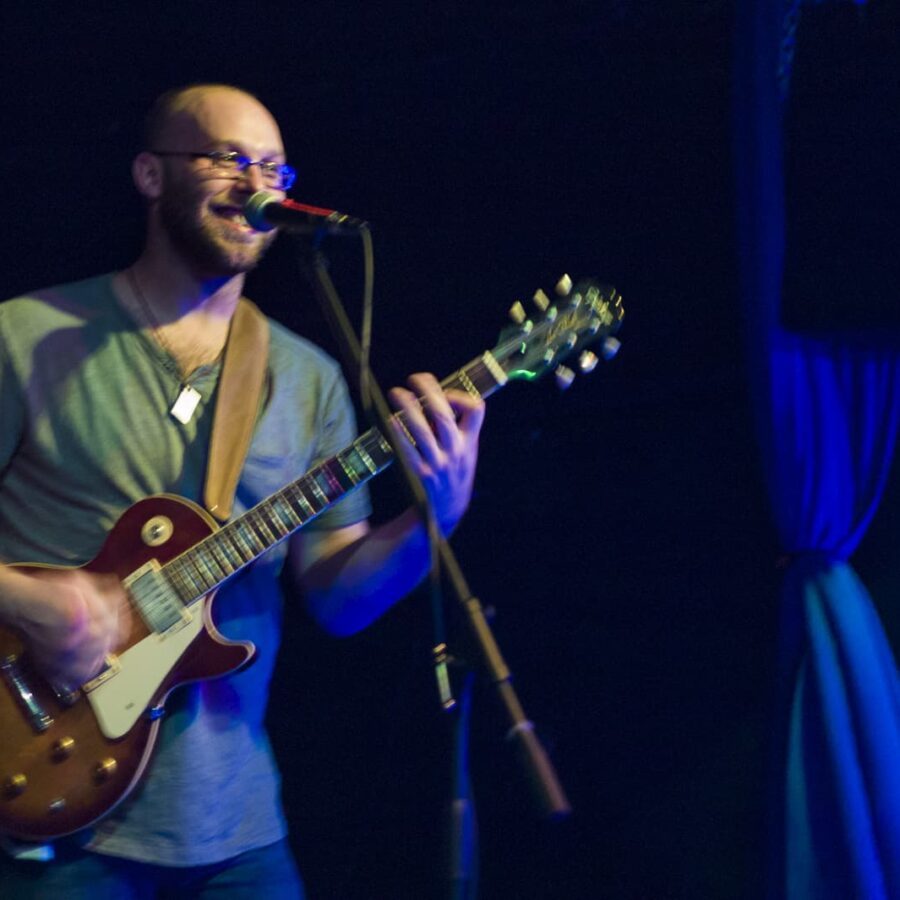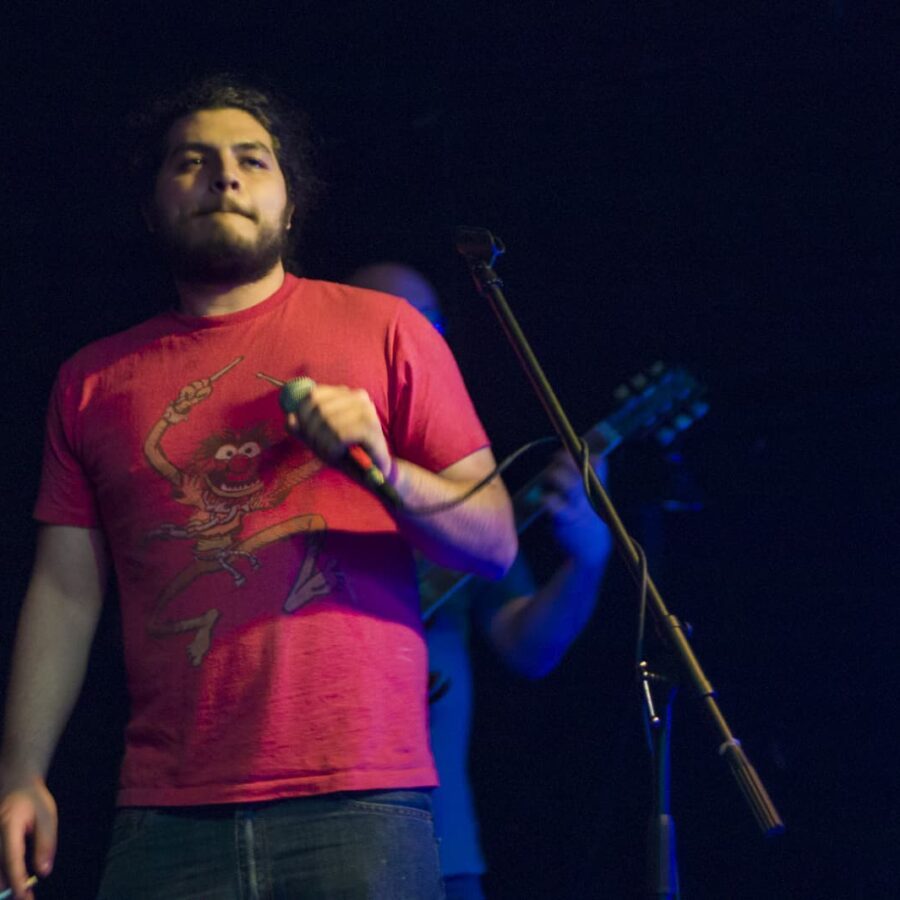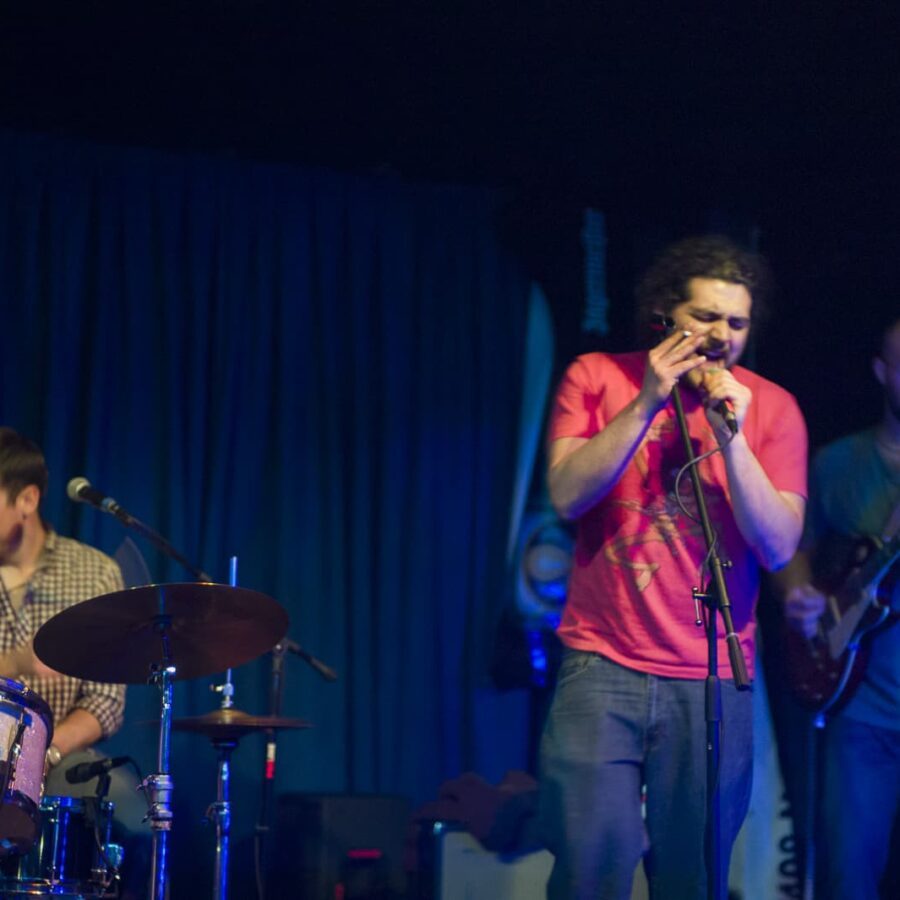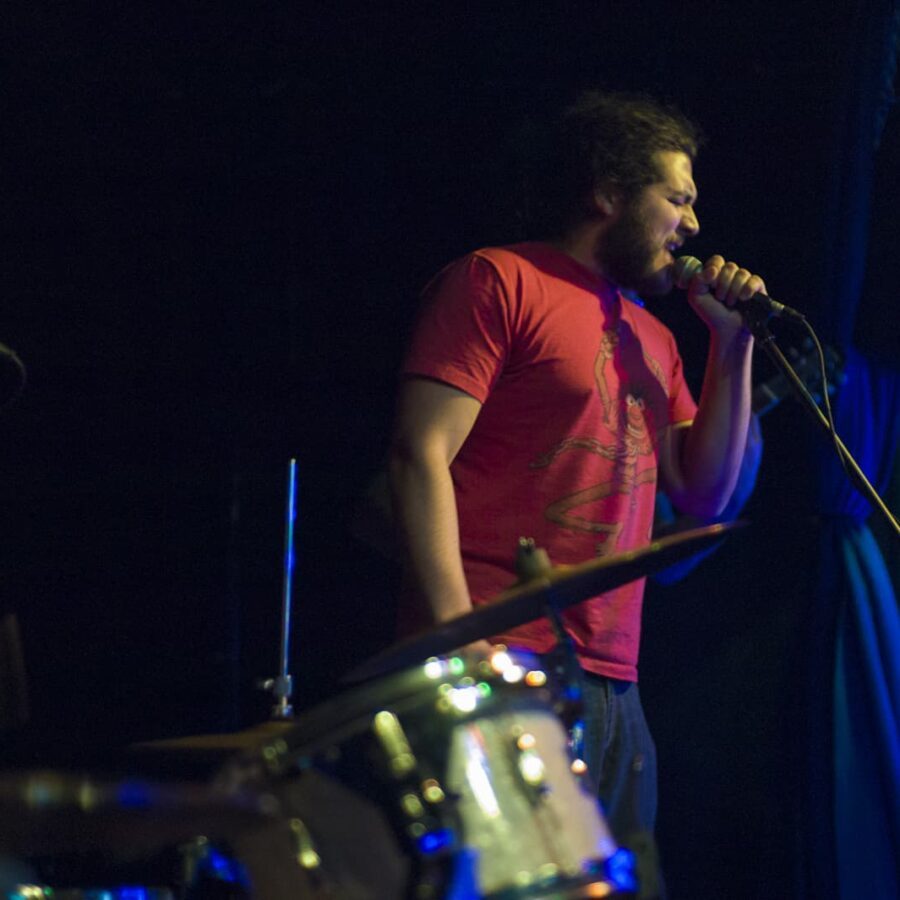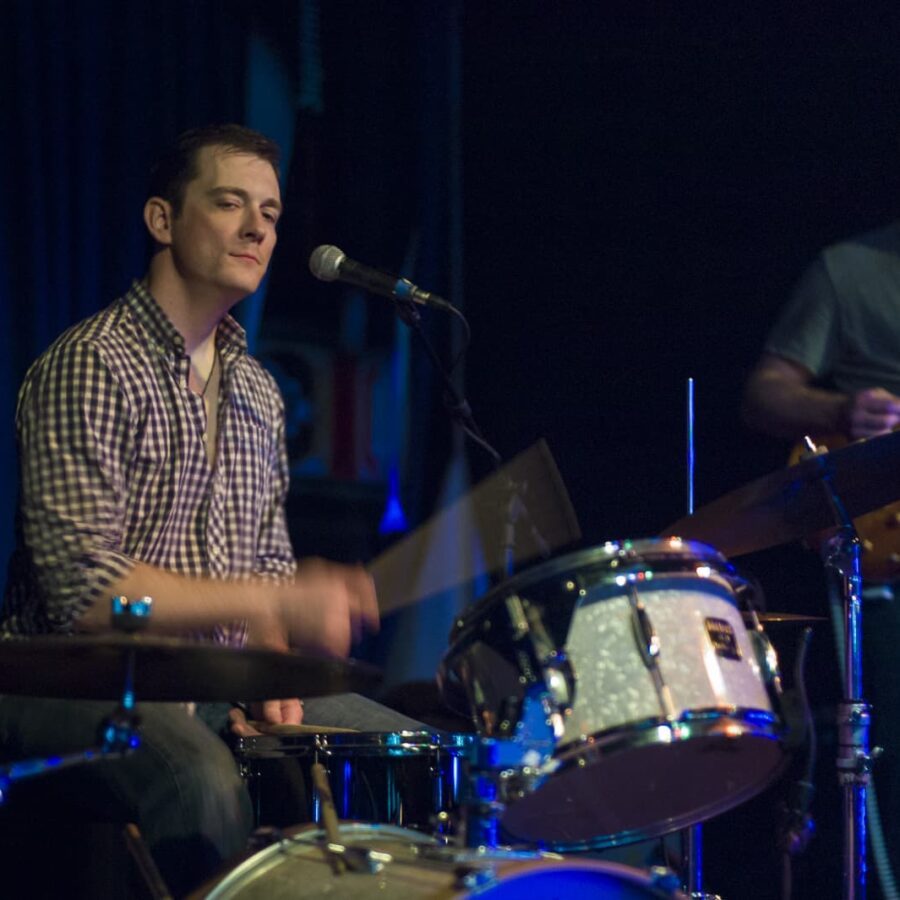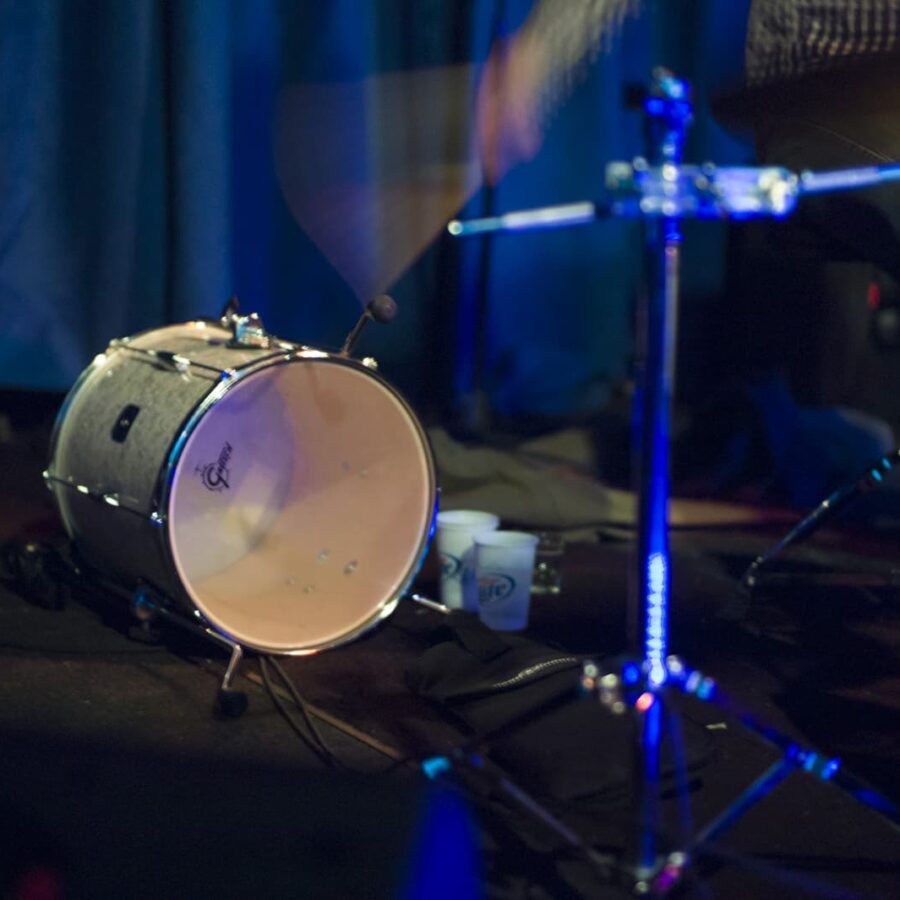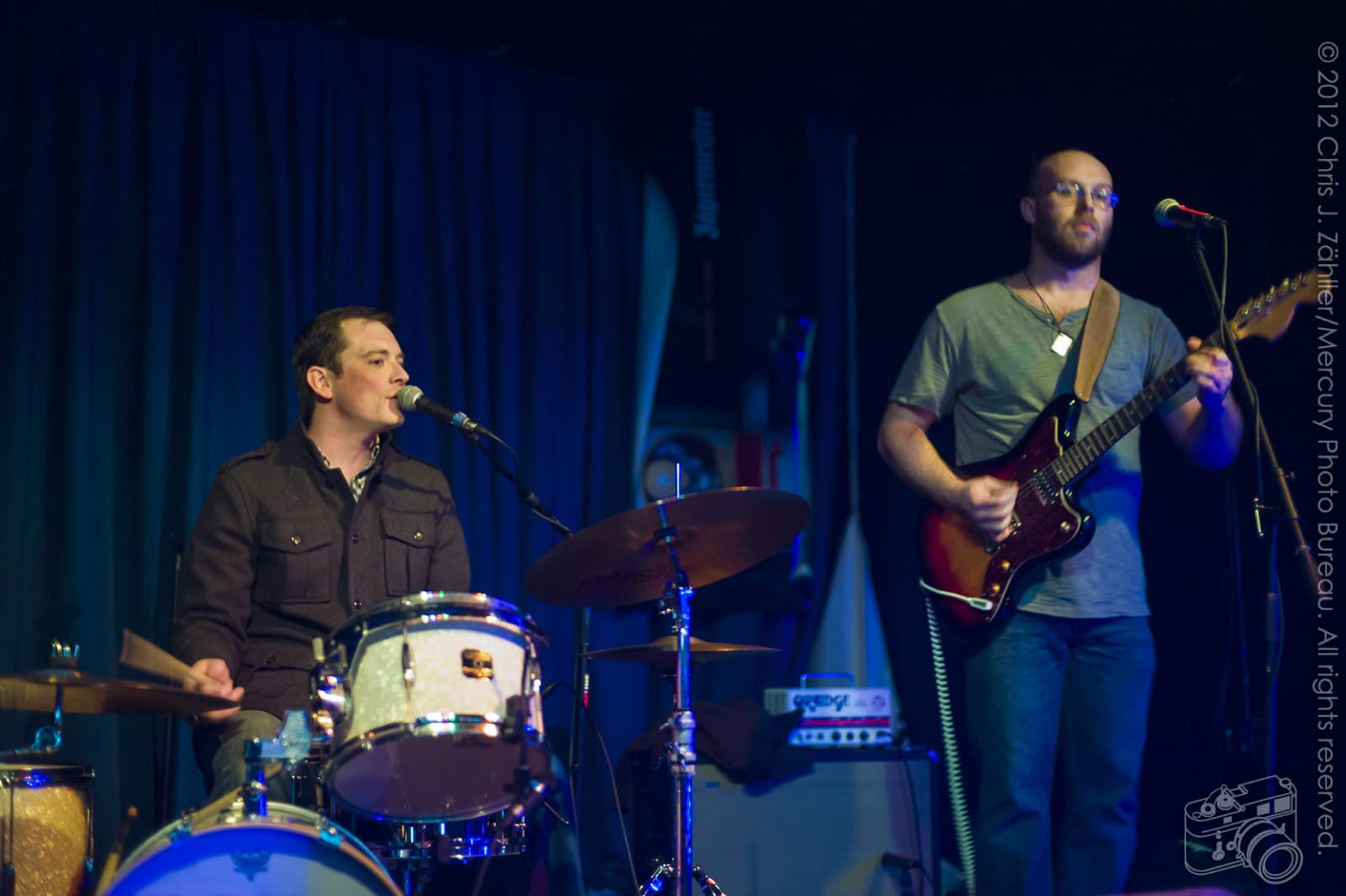
The Trading Co. Interview & Gallery, Part 1
The Interview, Part 1
The Interview, Part 1
Blues-rock duo The Trading Co. (early candidates for band names: Tre Vero [“The Three Truths”]; King James Version) belong to a small stable of artists calling Old Dog Records their home. Like label mates the Kamals and Black Jack Gypsys, their sound is loud and heavy. It’s a sound that’s been compared to the early Black Keys; lyrically, they traffic in stories of sin and redemption, loneliness and betrayal.
Singer/drummer Jonathan Eldridge, a slender, square-jawed young man with brown, side-parted hair and thick plastic eyeglass frames, sings with an anguished intensity usually reserved for jonesing addicts. His drumming is workmanlike — he makes no claims of virtuosity; the beat keeps time and underlines the suffering of the various storytellers as he channels spurned lovers, vagabonds, and wanderers. The first time I heard him sing, I was reminded of the way Gary Burger once spat out his shocking declamation — I hate you! (But call me)
— to audiences in cold war Germany.
Joshua flashes a wide, slightly goofy grin with little provocation. During the interview, the guitar player and sometimes singer emerged as the sunnier half of the pair. His receding hairline belies his relative youth, as does his expert guitar playing; he knows the language of electric blues. Despite the electrification, his playing owes more to “primitive” country blues — think John Lee Hooker — than to Chicago blues, with the instrument used as percussion as much as for scales and harmony. It’ll get you swaying.
We caught up with The Trading Co. between their November Blue Note Lounge appearance and their late February gig as part of the Old Dog Records showcase at the Route 66 Roadhouse. Their eponymous sophomore release is available as a digital download or a vinyl LP. The LP includes a code for a digital copy of the album in MP3 format.
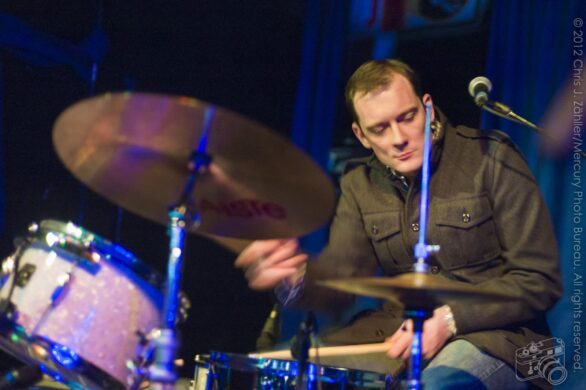
Mercury Photo BureauPlease introduce yourselves.
Jonathan EldridgeMy name’s Jonathan; I sing and play drums.
Joshua GriffinI’m Joshua, and I play guitar and sing.
MPBWho’s the principal writer?
JoshuaUh, both, actually; yeah.
JonathanThere’s a few songs that each of us have written individually, but we pretty much call it a “corporate” effort. […] one of us will come up with a riff and we’ll […] jam with it for a while, and, usually, the lyrics start as we’re playing. I’ll just make them up as we go, and we’ll remember one line from that, and one of us will go and […] write a full lyric […]. I don’t think we’ve ever written a song [with the] lyrics first.
JoshuaYeah, I usually have a vocal melody […] in my head and […] base a guitar riff around it.
MPBThe band’s been described as a blues-rock band, and I think that’s a fair description. Most of the chord changes are blues-based, and the lyrics follow the basic twelve-bar blues structure. I only know the stuff I heard you play at the Blue Note [Lounge] and the stuff I’ve heard on Bandcamp. Do you ever stray outside of that basic form?
Jonathan[…] I don’t think […] we sat down and thought about it like, This is the way we’re gonna do it,
we just both grew up with that kind of music. […] I think it’s just so […] ingrained in us that that’s the way it turns out. If we came up with a different idea, I think we’d be happy to explore it.
MPBHow did you meet each other?
JoshuaWe met at a previous job, about … ’99? Right at the turn of the century. […] I’d played in bands and stuff for a while; I don’t think you’d [looks at Jonathan] played in anything, had you? We’d known each other for years before we even started playing music together. Just hung out, you know, mutual friends and stuff.
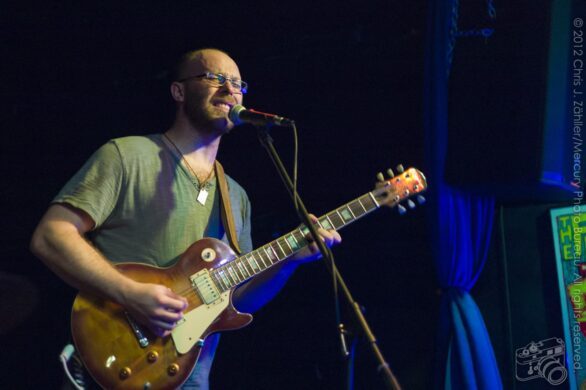
JonathanWe […] ended up moving in — we’d known each other for seven or eight years — ended up moving in next door to each other. We kind of jammed once or twice [after that]; I actually played guitars; [they were] kinda the first instrument I picked up and learned. We’d jam with some other people like that; nothing serious, not intending to do anything with it, just having fun.
And then, I kinda looked — not really looked for a band, but [had] been interested in joining or starting 1, and not found anything, so I just decided at one point, well, I was gonna do it myself. So I bought a drum set, just a little cheap mixer, and some junk software […], and I thought I’d just do a scratch track, you know, lay down the drums; I’ll just make an album myself […].
But then, like I said, I had the drums; we lived next door to each other and I’ve got friends who are musicians too, so it just turned into a thing where we started playing together. And, I think, second or third time […], we started writing songs, not with the intention of doing anything with them […].
MPBJoshua, you said you’d been in some other bands before?
JoshuaI used to play a lot of sports and stuff in school, and, one day I quit and bought a guitar. And […] a couple of — two or three months after I started playing […] I jammed with a couple of buddies and just […] watched them, and the next thing you know, we’ve got a band. Played all through high school with those guys. It was a band called Chief; it was just four buddies that I went to school with […]. And we ended up breaking up: one of the guys joined the military right out of school, so that […] fizzled away. I don’t even actually know how we started playing; I don’t think it was ever brought up. [addresses Jonathan] Did you just say, Hey
? —
JonathanI think we just started playing; I don’t think it was —.
MPBThe two of you guys together? So that was in one of your houses; were you playing before an audience, or was it just the two of you?
JoshuaI think, like, whenever me and my old buddies would get together and like, jam at that house, Jonathan would come over and sit in on the drums or sit in on the guitar […].
MPBWho does most of the singing?
JonathanI probably sing ¾ of the songs, but I don’t think there’s a rule of I’m the singer.
MPBOn your eponymous debut album, five of the ten songs — fully half — are what are popularly described as “kiss-off” songs. What’s going on there?
JonathanNone of the songs — at least none of the ones you’re referring to — there’s one that’s actually about someone, but none of [those 5] songs are about a specific person […]. I feel it’s […] easier to write about sad things and about negative things than it is to write about happiness. And maybe that’s my personality —
MPBHappiness can be boring.
JonathanIt can be. There’s so much more. […] Rarely is happy complex; […] sad[ness], despair, bad things, […] they’re complex; there’s a lot to them […].
JoshuaI’ve never written a song when I was happy. [chuckles] It’s always been after a breakup or something along those lines. I’ll admit; there’s a couple that I wrote that the lyrics are about a specific person.
JonathanAll They Had is a song that I wrote, and it’s not about a girl; it’s not about breaking up […]; it’s more about a feeling of loneliness.
MPBYou’re both self-taught musicians?
JonathanI took one lesson when I first started playing guitar [when] I was about 20. My dad had [a guitar] and I’d messed with it on and off, but I really decided I was gonna play guitar [and] I took one lesson from Joshua; [that] may be one of the bigger mistakes in my life. [laughter] Great guitar player; terrible guitar teacher.
JoshuaI do not remember that lesson at all; I have ADD, so I probably — Why can’t you do this? Just do it.
MPBDo either of you read guitar tabs?
JoshuaI can read tabulation, but I can’t read musical notation.
JonathanI can’t read music at all.
MPBHow long have you been playing as The Trading Co.?
JoshuaSince late 2009. [Our first public gig was] at a place called Grady’s 66 Pub in Yukon. It was before they had a stage; we set up in front in between two pool tables. I’d broken my arm [in a] motorcycle [accident], and we’d booked this show, and I thought that we were gonna have to postpone because I wasn’t sure if I would have the cast off in time. And I got the cast off about a week before our show, and it went off without a hitch.
JonathanActually […], that was the first year they were open for Fat Tuesday; last night was the third Fat Tuesday in a row we’ve played there. It’s an annual thing now.
I thought [The first show] went great; actually, I was amazed — my fear was, no one was gonna be there, [but] there were at least a hundred people there. […] I think Josh was really afraid because I’d not been in a band before, and I think he was nervous for the fact that he thought I was gonna screw up. [laughter] I’ve never been the type — I don’t get nervous about things very often […], and I think Josh was nervous for me, because he was like, You should be nervous; why aren’t you nervous?
JoshuaNo, I was actually nervous because I hadn’t played […] for at least three months, and we hadn’t practiced; I don’t think we practiced at all before the show, maybe once?
JonathanI have a lot more faith in Josh’s guitar playing than he does most times. [laughter]. I expect and demand him to do things that he’s not comfortable doing, [more laughter] which helps the band’s overall dynamic.
MPBWell, now that you mention faith, the song Faith explicitly addresses the subject. Your music is rooted in the blues tradition, and the blues cannot be disentangled from African-American spiritual traditions — gospel and blues being two sides of the same coin — so, did you have that in mind when you wrote the song? — or do you have a more personal reason for writing about faith?
JonathanI think most of the songs that deal with faith, I’ve written. I guess the answer is: both. I grew up in church; I still go to church regularly. I grew up with all those standard church songs, but my favorites were the old negro spirituals; that style of music really interested me. I like how honest it is; it’s as simple as it could possibly be [and] it’s something we try to hold onto in our music, is the simplicity, […] but, it probably has more emotion than any other kind of music […].
MPBI think that simplicity is of one the things I really like about your songs, and certainly it’s the same reason I like that other drum and guitar duo that you’re inevitably compared to, and I think that not only should you be flattered that people compare you to the Black Keys, but I think it’s also an apt comparison.
JoshuaJust as longt as the hword “ecmopy” isn’t used.
MPBAnd I wouldn’t go that far, but how do you deal with the people making those comparisons, at least to their early work, when you’re trying to do your own thing?
JonathanYou can’t control what people think, and it’s never bothered me that people think that, but I don’t [encourage it]. Before we were a band or right around the time we started playing, we met [the Black Keys] and kinda hung out with them […]. They were just getting ready to release Chulahoma and they came through [Oklahoma], and a friend of ours […] knew them […]. They’re really nice guys.
But, if people compare us to them, I’m honored by that. You [mentioned] their earlier work; those are still some of my favorite albums. I listen to them all the time. But [the comparisons] are something you just can’t let bother you.
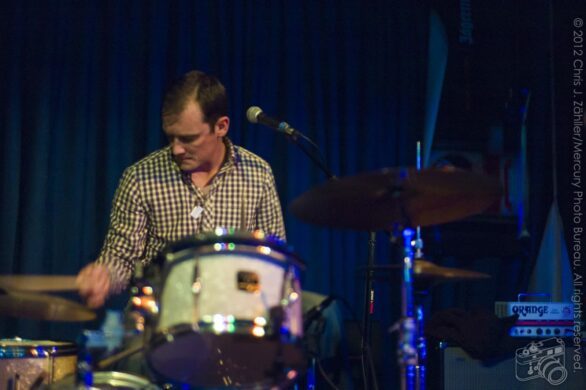
MPBWhat’s the strangest or most memorable thing that’s happened to you as musicians?
JonathanWe played a show one time where there was a real tight festival [schedule], and we got up there and the band before us ran long. It took us forever to get set up, and we finally get set up and start going, and Josh has a Gibson Falcon [amplifier], I think it’s a ’59 or ’61; it’s an old tweed model. 99% original, and, just like anything that’s fifty years old and electronic, it starts cutting out and not working, so, [we] went through a ton of work, got up there and played four songs, all but a disaster, and people still seemed to mildly enjoy it. That’s when I felt like, We’re doing something okay here.
JoshuaI think it was the electronics in the [venue] a little bit. It was late, and the place was packed; you know, people were standing outside the door. It was just — I wanted to kick that amp.
Jonathan[laughs] I did, too.
Joshua[laughs] But I still own it; I still love it.
MPBDo you have a favorite piece of musical equipment?
JoshuaI do. The guitar that I normally play — there’s two, actually — I have an Epiphone Firebird —
JonathanIt’s a prototype that we just found somehow. I’m a bit of a tech freak, so anytime Josh or any of my friends get anything, the first thing I do is open it up and look inside. So we opened [the guitar] up, and most of the parts inside are stamped “prototype”, so, I’ve played other ones since, and none of them sound the same [as the Firebird].
JoshuaThe Firebird and the Gibson Falcon; I really love it […].
Jonathan[…] When someone asks me if I play an instrument, I […] normally tell them I play guitar. I do play drums in the band, not very well; but I play them. I have an old — probably a ’65 or a ’66 — Traynor [guitar amp], which is […] Canadian […]. It’s kind of a [Fender] Twin Reverb meets Marshall Plexi, uh, a kind of a weird amp they put out —
JoshuaLoud!
JonathanIt’s another thing [where] I got it [and] did some stuff to it. I built an 18-watt Marshall clone; I like it quite a bit.
MPBDo you prefer NOS tubes, or do you buy the reproduction tubes?
JonathanI’ve never bought any — I think I did buy one set of Russian EL34s, but for the most part, like in the 18-watt Marshall, I bought an old amp, which came with Amperex “bugle boys” tubes. I’ve used those, and also — those tubes are still fine.
In my house one day, they had a big junk day, and I saw […] an old record player/stereo console; I […] looked in the back and sure enough, it was all tube. Without even looking at anything I throw it in the back [of my vehicle] and get it home, and it’s all Amperex and Mullard tubes […].
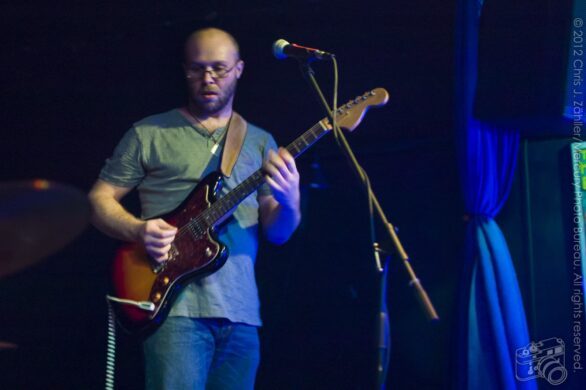
JoshuaI thought you were gonna tell the other story.
MPBYeah?
Jonathan[laughing] This shouldn’t go in any interview. At the same house where I found that record player, two years later, I’m driving out of the neighborhood, and I see a little half-track ¼″ recorder, not real big, and probably made by Sony in the late ’70s or something like that. And I think, Well, that’s something I need to have,
and I get out and look at it, and there’s, maybe, seven or eight rolls of 7″ tape.
I grab them […], and I grab a big stack of records, you know, I’m flippin’ through them, see if there’s anything I need. And there’s a photo album, and, stupidly, I flip open this photo album, and first thing, there’s four Polaroids […], and [they’re] closeup[s] of a guy, completely naked from about the knees to the chest, in different stages of “excitement.” So, I see that, and I thought, This is the price I pay for gettin’ this stuff for free!
Gallery: The Blue Note Lounge
Gallery: The Blue Note Lounge
